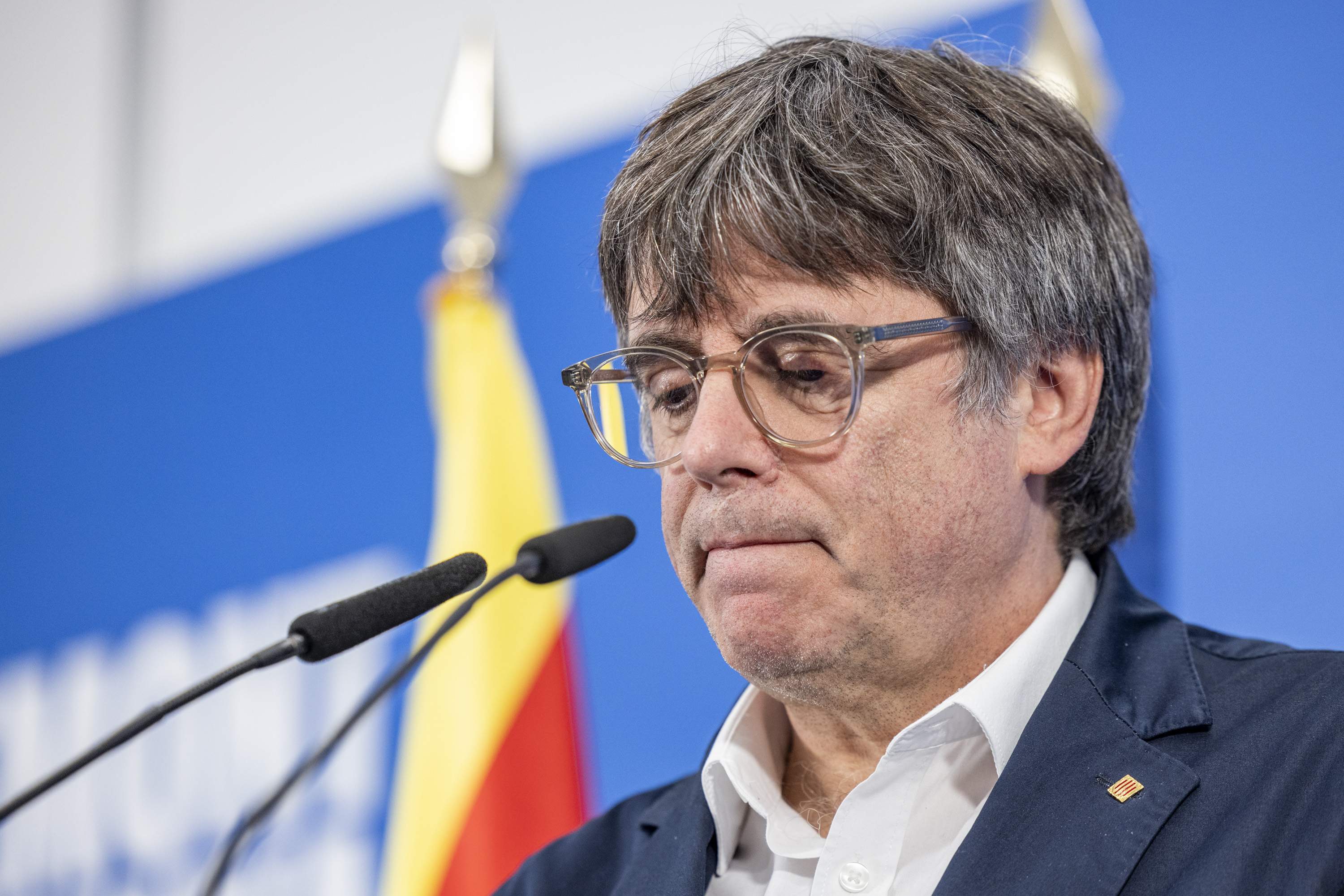With a matter of days left until the definitive passing of the amnesty law that should allow the return of Catalonia's exiled pro-independence politicians, president Carles Puigdemont has complained from the Belgian city of Leuven that the end of exile for himself and his colleagues is not coming about thanks to the EU's support for pro-independence politicians, but because of the need that the Spanish prime minister, Pedro Sánchez, had for the votes of the pro-independence MPs in the Spanish Congress, to enable his new government to be formed.
Puigdemont expressed his regret that it has happened this way, and not the other way around, in the context of the presentation of a book by the Together for Catalonia (Junts) candidate for the European elections, Toni Comín, entitled Cartes des del cor d'Europa ("Letters from the Heart of Europe"). In the presence of the premier of Flanders, Jan Jambon, the two Catalan politicians took advantage of the event to express their gratitude for the support they have received from the Flemish people, and referred to the end of their exile which will take place next week with the approval of the amnesty on Catalan independence process judicial procedures.
Spain, unacceptable
"But six and a half years will have gone by since we arrived in Brussels and this exile will not have ended thanks to the efforts of the EU, but because Catalans made it a condition before they agreed to give support to the Spanish government", Puigdemont pointed out, after recalling that they have been victims of the repression of the Spanish state, which "despite being a member of the EU has behaved in a way that is unacceptable by European standards".
Puigdemont reiterated the will of the Catalans to participate directly and with their own voice in the construction of Europe, at a time when the EU must decide "whether it ends up becoming a superstate that centralizes and standardizes, or whether it is a federation of multiple identities and diverse interests that are put at the service of a common goal of peace, well-being and progress".
Comín: "Spain did not defeat the fascist regime"
Comín also referred to the quality of Spanish democracy. He recalled that Spain is an "exception" in Europe given that "it is the only state in Europe that had a fascist regime and did not defeat it". "And this explains the poor quality of Spanish democracy, that the Spanish transition was not a true transition to democracy, that Spanish judges have nothing to do with Belgian judges...", he underlined.
He assured that, today, Spain is not a democracy on the same level as the rest of European democracies, and that this situation explains that "it has a structural difficulty in integrating its national diversity" and that "in Catalonia there is a majority of the pro-independence population".

